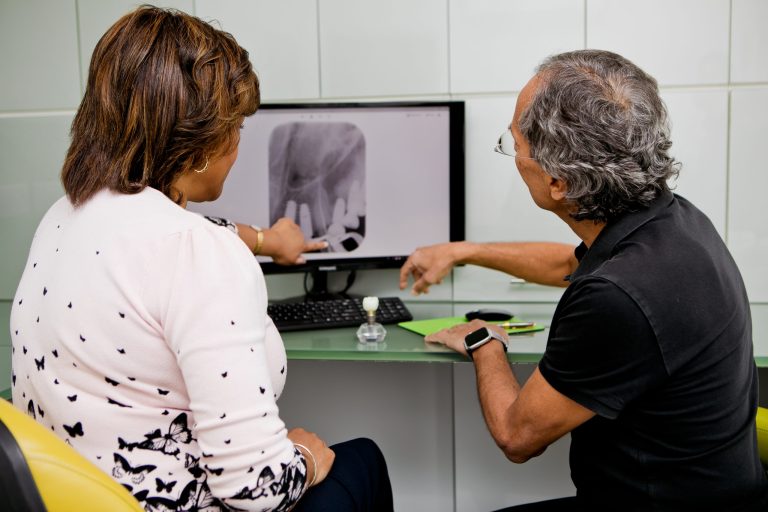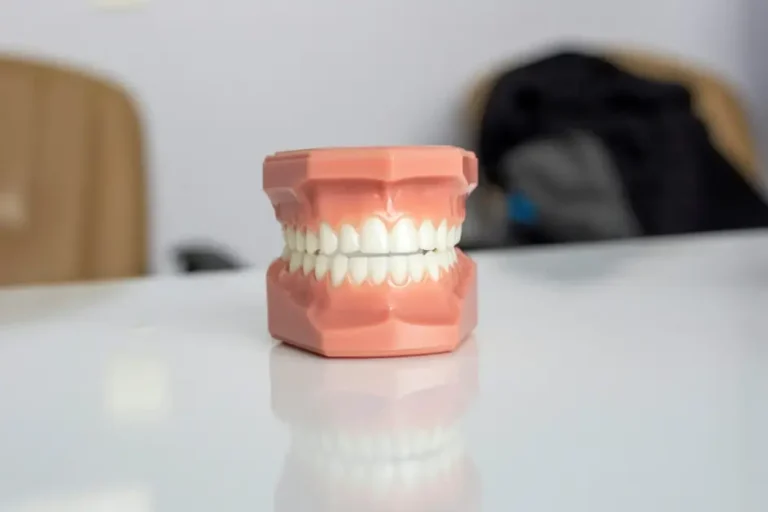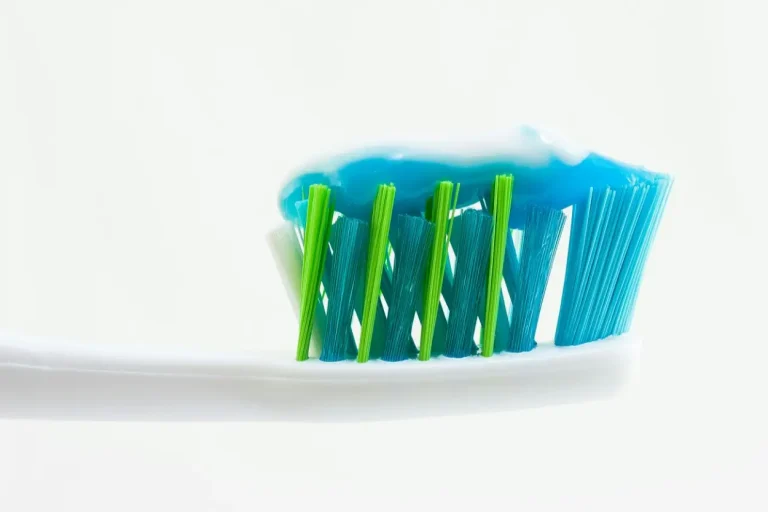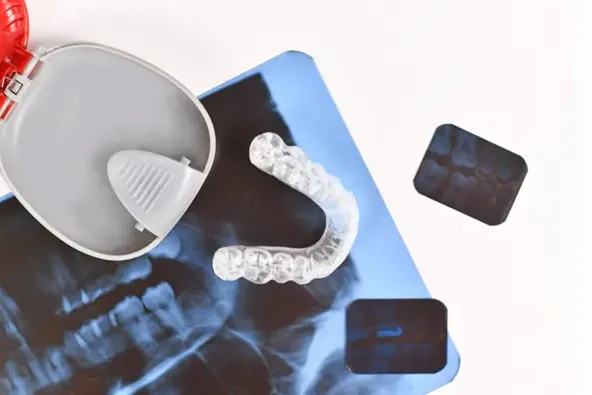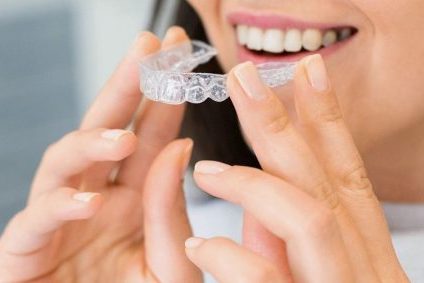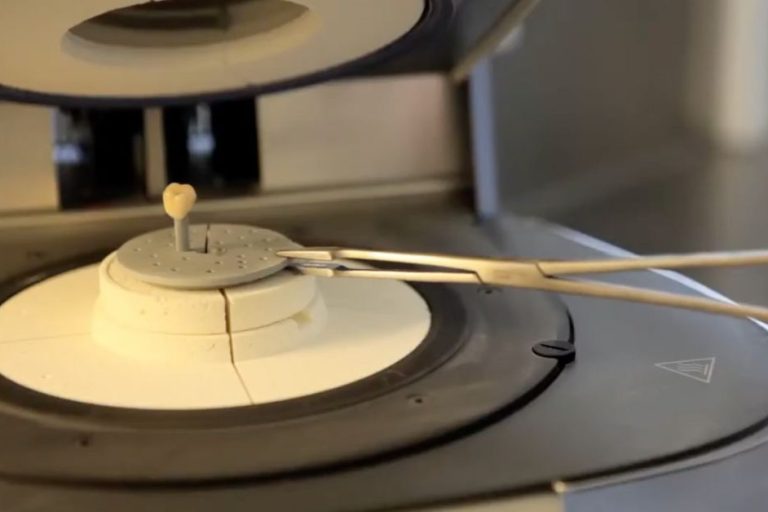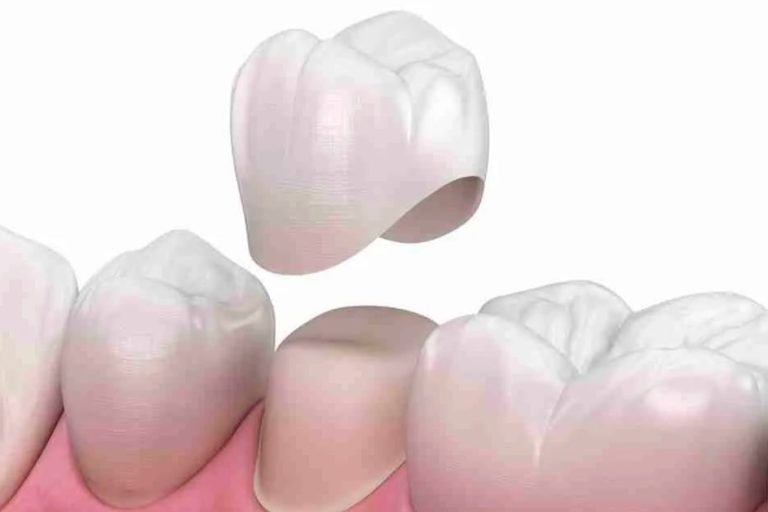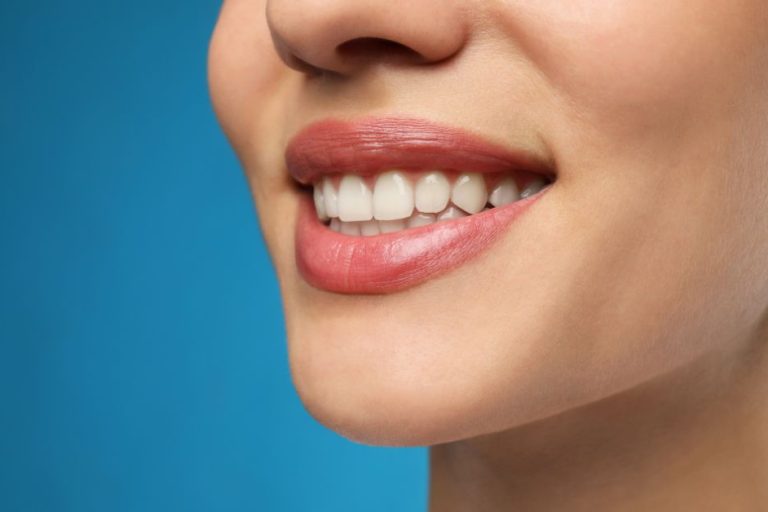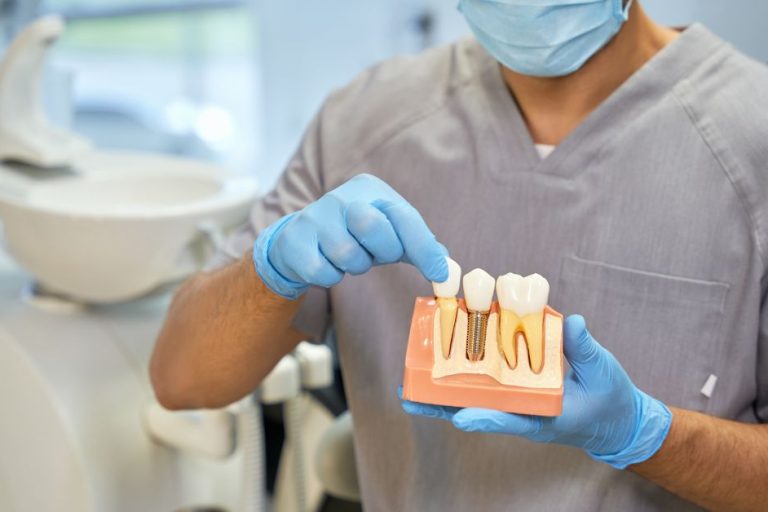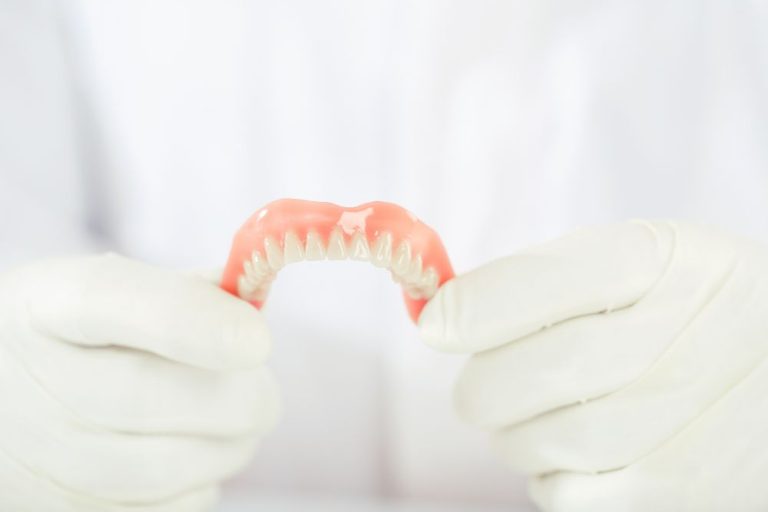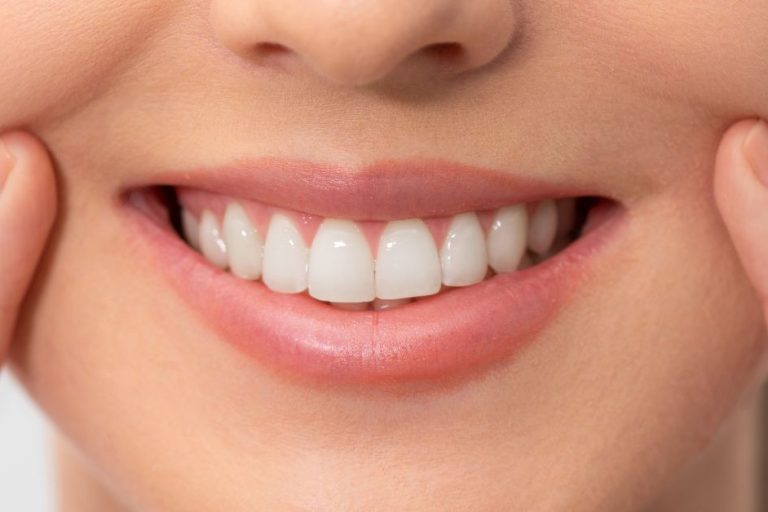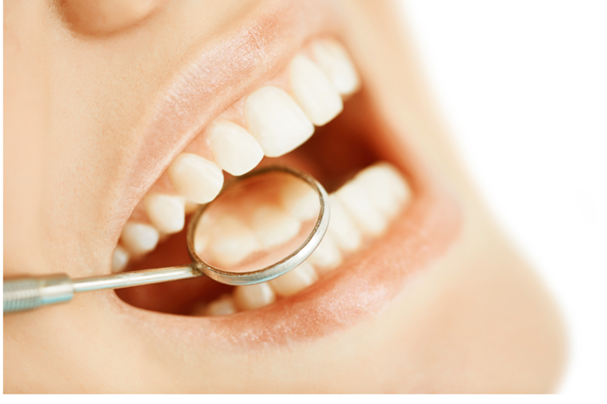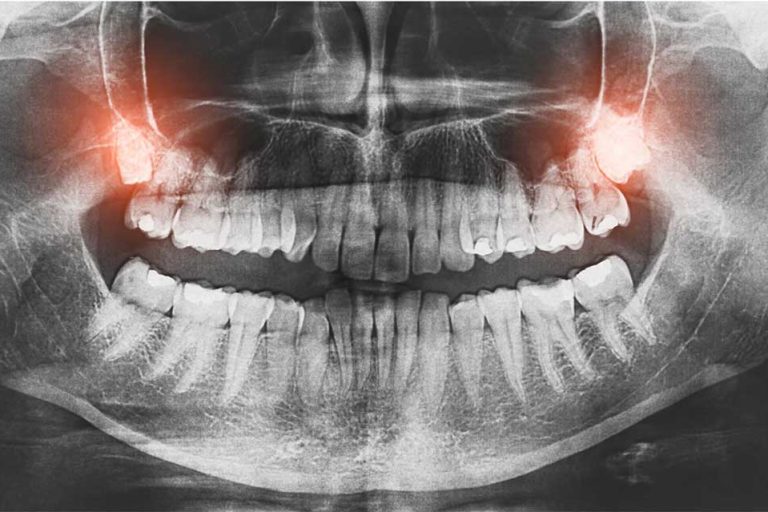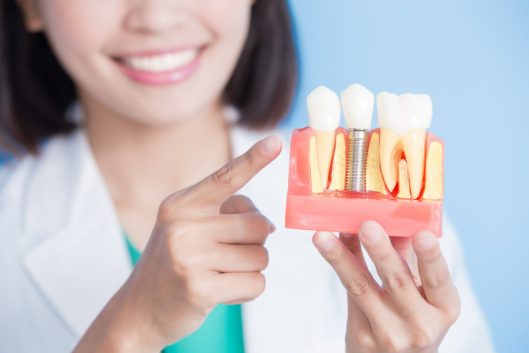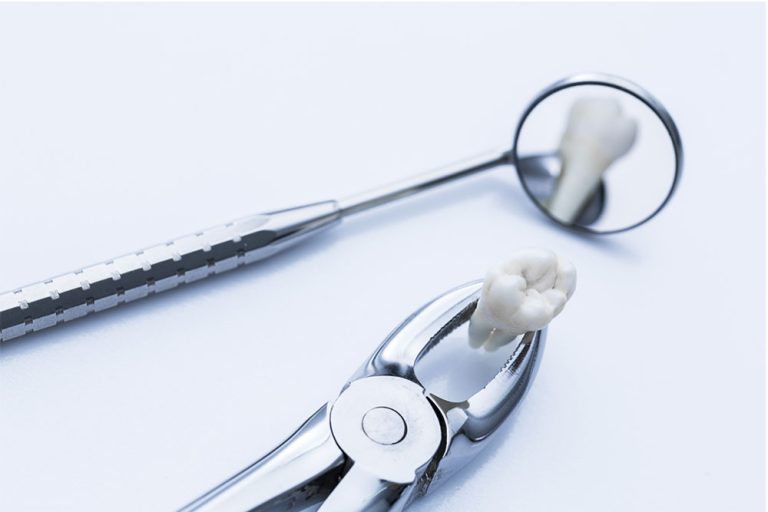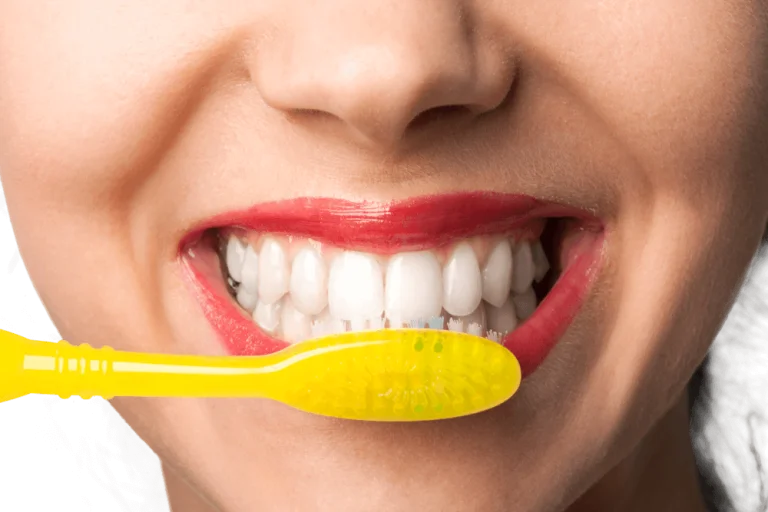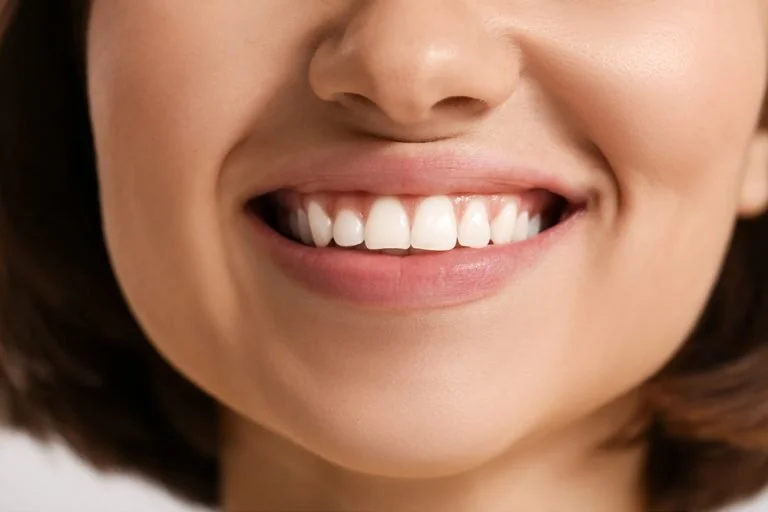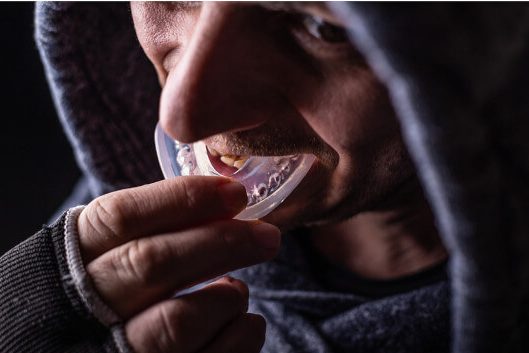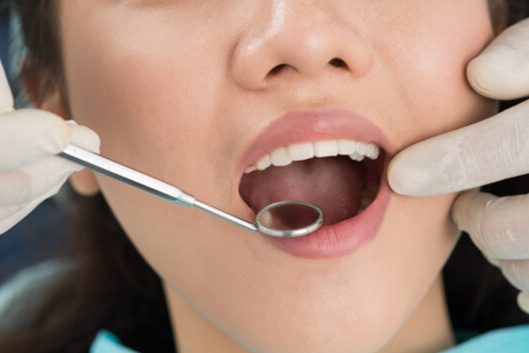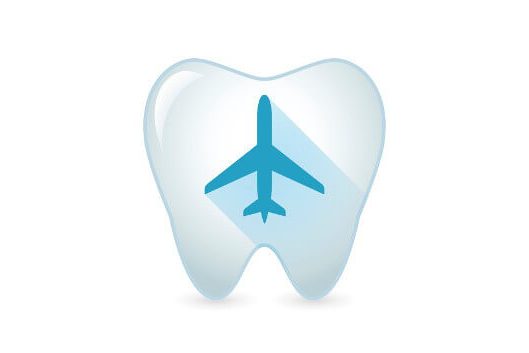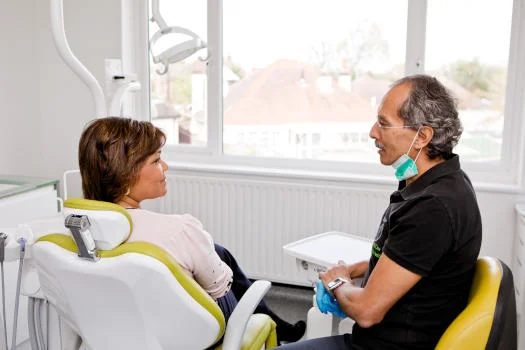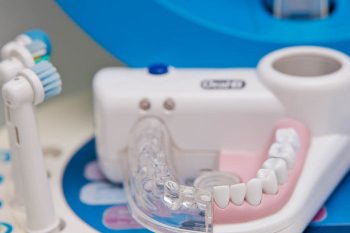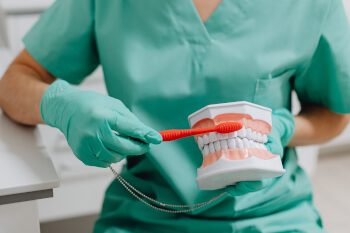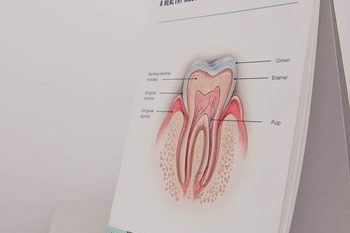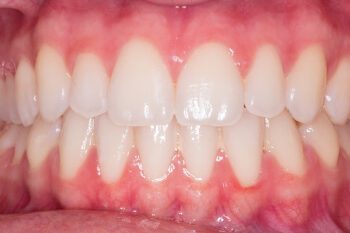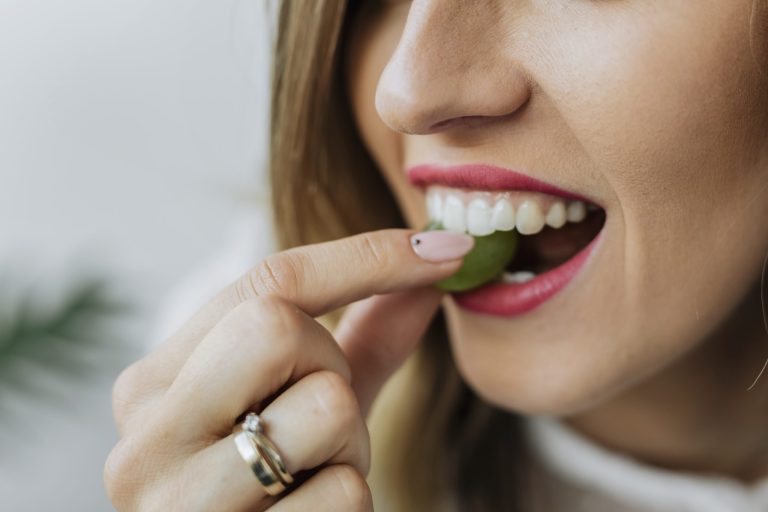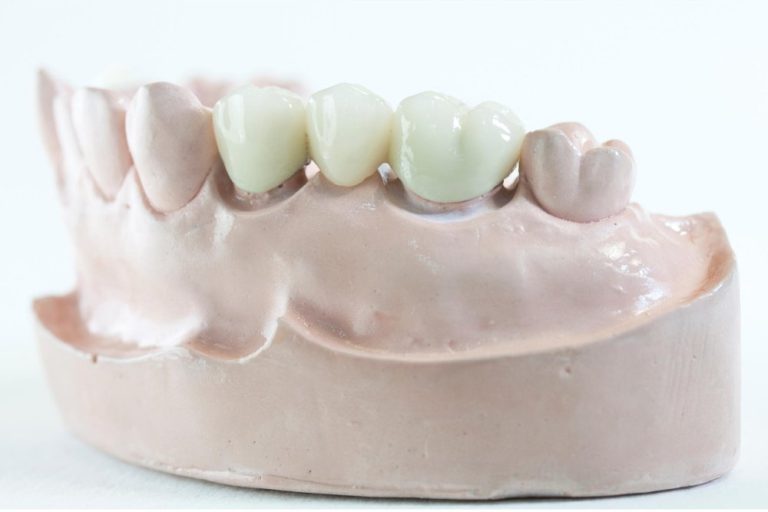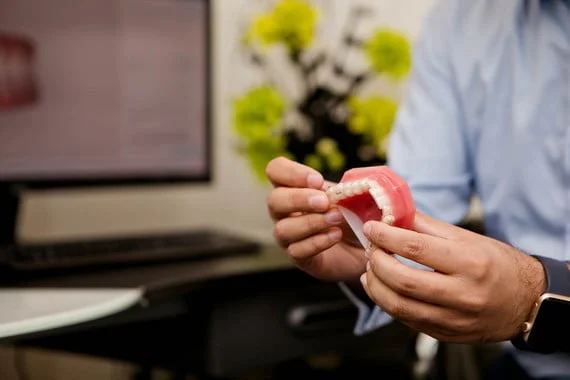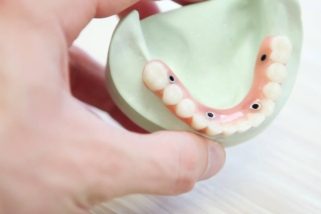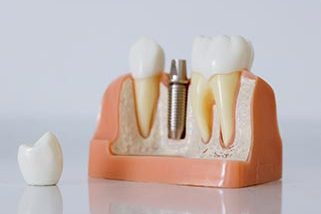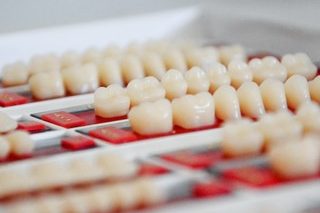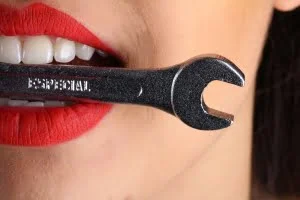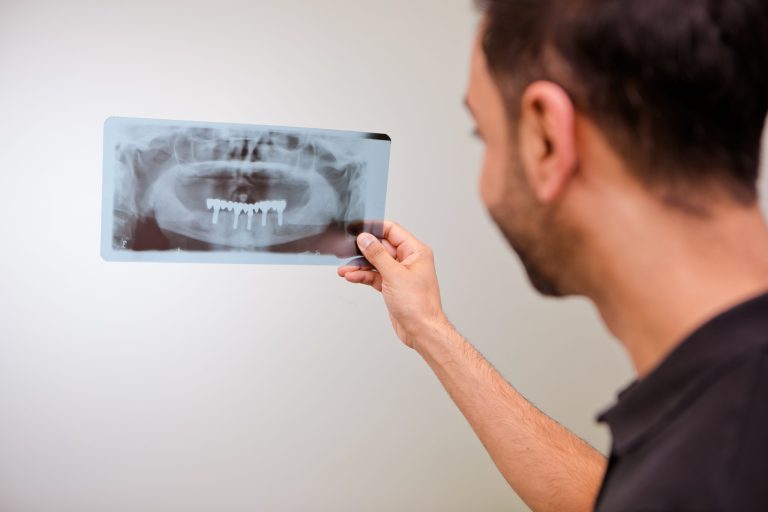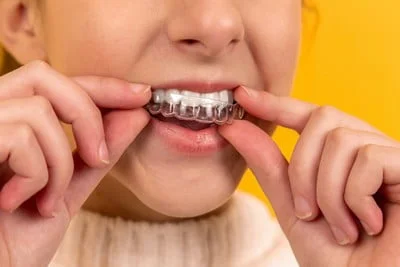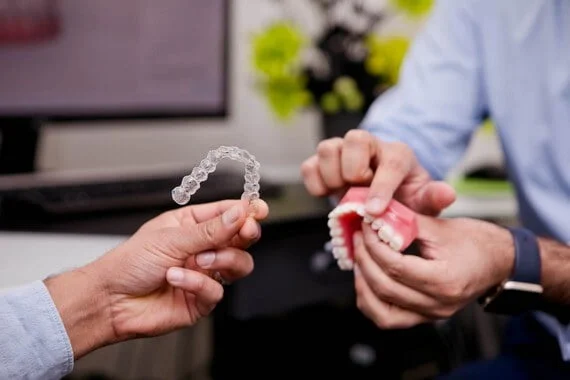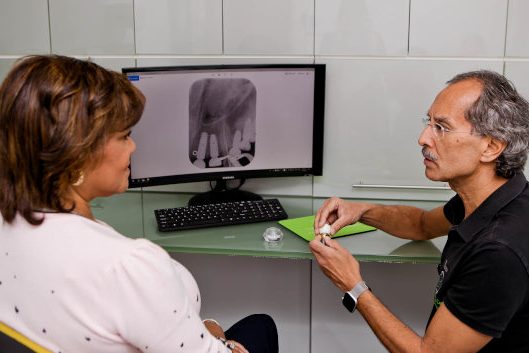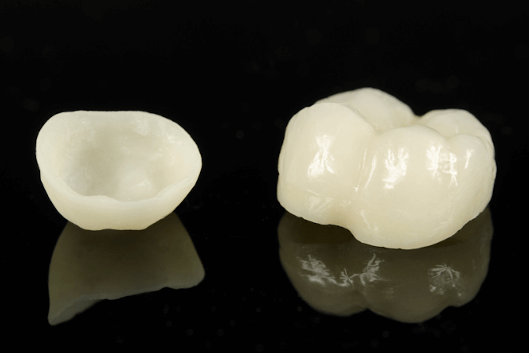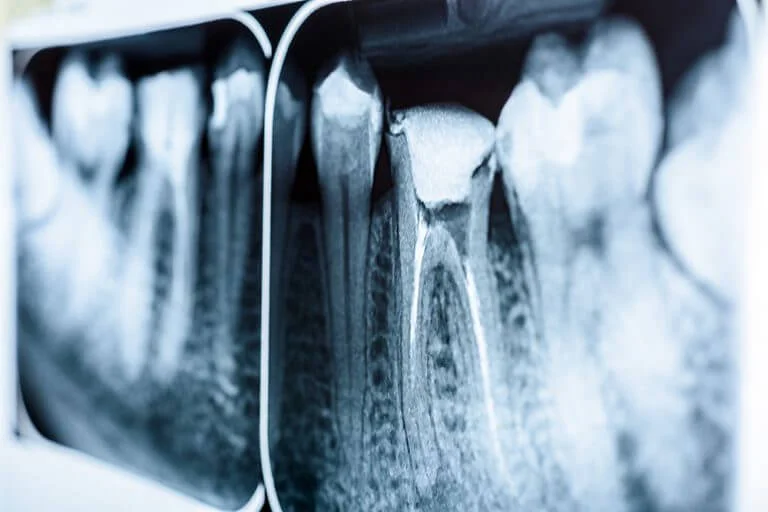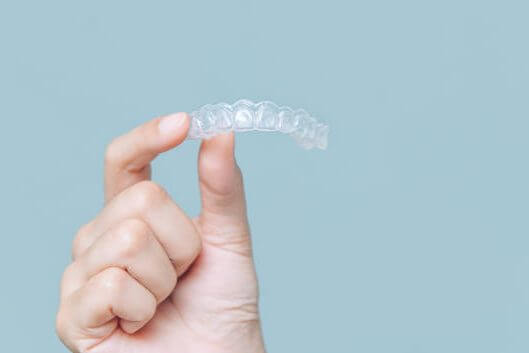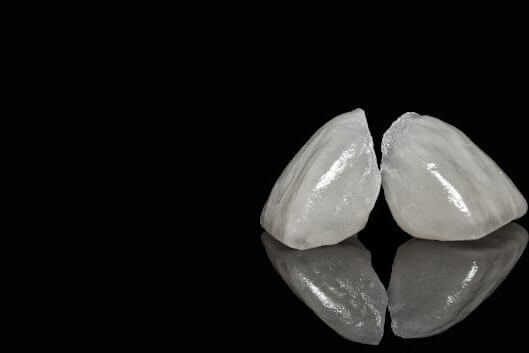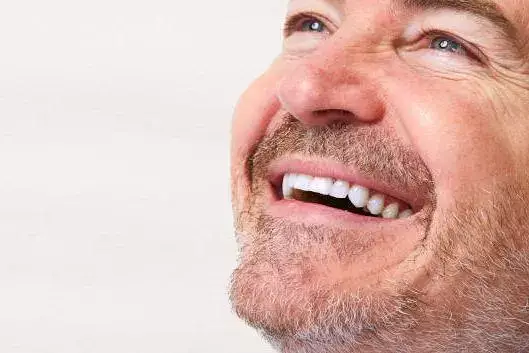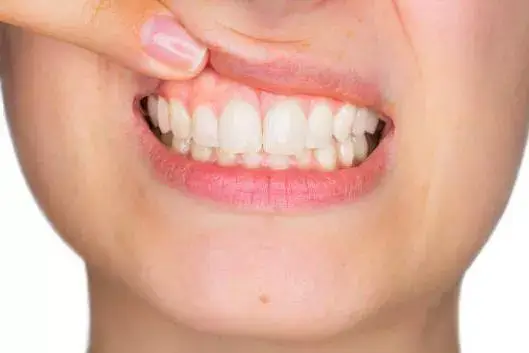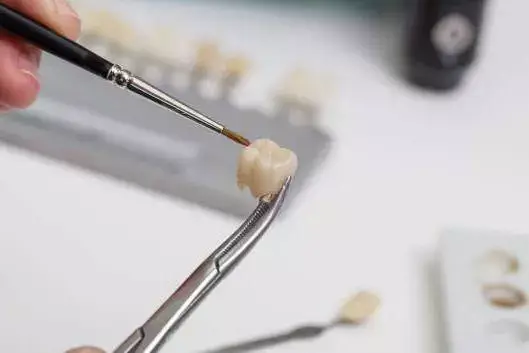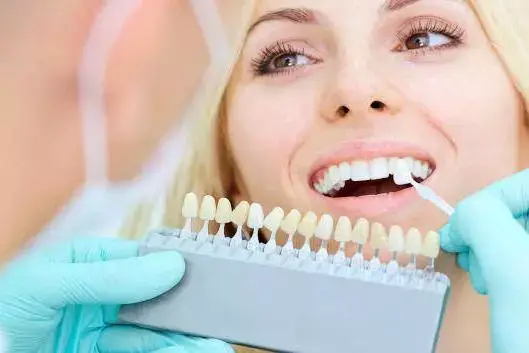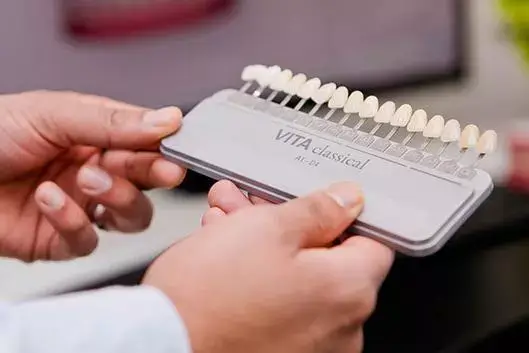How Are Dentures Made?
Have you ever wondered how dentures are made? It’s an incredibly complex, 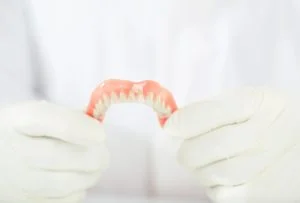 multi-stage process, one that requires expert precision and skill. From the initial consultation and diagnosis to the final fitting, here we’ll take a look at every step of how modern dentures are created.
multi-stage process, one that requires expert precision and skill. From the initial consultation and diagnosis to the final fitting, here we’ll take a look at every step of how modern dentures are created.
Dentists have been creating prosthetic teeth for centuries, but even with all the advances in technology and materials over the years, it still takes considerable time and effort to make sure your new set of dentures fits perfectly. But how exactly do they go from concept to completion? Let’s find out.
The first step is taking accurate measurements of the patient’s mouth. This allows dental technicians to create exact replica models so they can craft a bespoke solution tailored specifically for them. They then use this data to design both a wax model and metal framework before sending it off for casting using special heat-resistant ceramic material or polymers – depending on what type of denture has been prescribed. So if you’re curious about just what goes into making someone’s perfect smile, keep reading!
Initial Evaluation of Needs
Before dentures can be made, a patient’s needs must first be evaluated. A dentist will start by taking an impression, or mold, of the teeth and gums. This helps them determine exactly how much space is available for the denture to fit into once it’s created. The dentist then takes measurements of the jawbone and notes any irregularities in the structure that might affect the size and shape of the denture.
The dentist also examines existing teeth for signs of decay or infection, which may require treatment before a new set of dentures can be fitted. Finally, they discuss with their patient what kind of material should be used to make the denture – plastic resin or metal alloy are both common materials. Once these factors have been taken into account, they’re ready to begin creating the actual dental appliance.
Taking An Impression
Once the patient’s needs have been evaluated, the next step is making an impression. This involves creating a negative mould of the upper and lower jaws in order to make dentures that fit comfortably. It typically takes two appointments for this process.
During the first appointment, the dentist will take impressions of your teeth with special trays filled with putty-like material. These impressions are then sent off to a laboratory where they create models of your mouth from which dentures can be made. During this visit, you also may choose what type of colour or shape would best suit you for your denture base as well as any other aesthetic features such as tooth colouration and design.
At the second appointment, once all these decisions have been finalised, impressions are taken again so that exact measurements can be determined for making your custom set of dentures. The dentist will ensure that everything fits correctly before sending it off to be fabricated at a laboratory. After about 2 weeks, you’ll return for one final preview (try-in) fitting and adjustment session before being able to start using them.
Wax Try-In For Visualisation
The third step in making dentures is the Wax Try-In. During this phase, a wax trial of the denture teeth is placed over an impression of the patient’s jawbone to create a visualisation of what the final dentures will look like. This gives both the dentist and patient an opportunity to see how the denture fits into their mouth and make any necessary changes before beginning fabrication.
When performing a Wax Try-In, several factors are taken into account. The shape, size, colour and arrangement of each tooth must be carefully considered in order for them to fit naturally within the patient’s face structure. The bite must also be checked, as it needs to be balanced and comfortable when speaking or eating food. Additionally, since some patients may require special modifications due to any existing oral health issues such as gum disease or missing teeth, these specific areas need to be attended to during this process.
Once all adjustments have been made according to the patient’s individual needs and preferences, then they can proceed with creating a cast that will serve as a model for fabricating their new dentures. All in all, it’s important that each aspect of the wax try-in is performed correctly so that no further corrections have to be made once production begins – resulting in a perfect set of custom-made dentures that provide maximum comfort and functionality down the road.
Fabricating The Final Denture Product
Once the wax try-in is complete and approved, it’s time to move on to fabricating the final denture product. The process begins with a titanium or cobalt chrome base called a framework in cases where there is a custom metal base. This foundation supports the acrylic teeth which are attached to it. Once this step is completed, the entire denture assembly is immersed in a special liquid that will cause the acrylic material to harden.
The next step involves adding additional detail such as polishing and staining of the dentures to give them an even more realistic appearance. After these steps have been taken, any necessary adjustments can be made prior to fitting them onto the patient’s mouth for proper alignment and bite registration.
At this point, clinicians may perform other tests designed to ensure comfort and functionality – such as checking jaw movements while speaking and eating.
Fitting And Adjustments
Once the dentures have been made, your dentist will fit them to your mouth. This includes making sure they are a comfortable size and shape for you. Your dentist may also need to make minor adjustments, such as trimming or adjusting the bite of the denture teeth. You may be asked you to wear the dentures for a period of time (days to weeks) so that any further changes can be made at follow-up or review appointments.
Your dentist will check how well the dentures stay in place when you speak and chew food without irritation or pain. If necessary, they can use adhesives like adhesive powders or pastes to help keep them secure while you’re eating and speaking. For more stability, dental implants can also be used instead of adhesives.
To ensure satisfaction with their appearance, colour, size and shape, your dentist will work closely with you throughout this process until you’re happy with how your new smile looks and feels.
Post-Treatment Care Considerations
Now that dentures have been fitted and adjusted, it is important to follow certain post-treatment care considerations. For starters, the patient should never sleep in their dentures unless specifically instructed by a dentist or dental professional. Additionally, regular cleaning and maintenance of the dentures are essential for optimal oral health and hygiene.
It is recommended that patients brush their gums, tongue, palate (roof of mouth) as well as any remaining natural teeth twice daily using a soft toothbrush. This will help remove food particles and plaque buildup which can lead to bad breath and other issues if left untreated. In addition, rinsing with water after meals helps rid bacteria from the mouth.
Patients should also soak their dentures overnight at least once per week in either cold or warm water mixed with an approved cleaner solution or special tablets designed for this purpose. These cleaners help reduce tartar build up on the surface of the dentures as well as prevent them from becoming stained over time. Regular visits to the dentist are highly encouraged so they can check how well the denture fits and make any necessary adjustments accordingly.
Length Of The Process
The process of creating dentures can take anywhere from one to six weeks typically. It usually starts with a consultation between the patient and dentist. During this time, they discuss the type of denture that best suits their needs, as well as the cost associated with them. After the consultation is complete, impressions are taken of the patient’s mouth so that the dental laboratory can accurately replicate it in wax form.
This wax model will then be used by both the patient and dentist to determine if any adjustments need to be made for a better fit or improved aesthetics. Once all necessary changes have been made, an acrylic resin material is poured into a mold of the wax replica and hardened using heat or ultraviolet light. Finally, after any additional polishing or finishing touches are completed, the dentures are ready to be fitted into place.
Who May Benefit From Dentures?
Transitioning from the length of the process, dentures may be beneficial to a wide range of individuals. They can provide an inexpensive, quick and non-invasive solution for those who are missing or have severely damaged teeth. Some people may choose to get dentures due to age-related tooth loss while others require them following a traumatic injury or medical condition.
Dentures offer several advantages such as restoring one’s smile and improving their ability to chew food correctly. Additionally, they help support facial muscles that would otherwise sag without teeth in place. Furthermore, if wearing removable dentures, it is possible to take them out for cleaning purposes which helps reduce bacteria buildup in the mouth.
For people looking for a replacement option for missing teeth, dentures may be worth considering as they provide both aesthetic and functional benefits at a fraction of the cost of other treatments like dental implants. Moreover, there are plenty of options available depending on individual needs and preferences so it’s important to consult with your dentist before making any decisions, such as implant– supported dentures.
Pros And Cons Of Using Dentures
Dentures can be a great way to replace missing teeth and restore your smile. But they come with some pros and cons that you should consider before making the decision to use them.
The first pro of dentures is that they look natural when properly fitted by a dentist and made from quality materials. They also help maintain facial structures, which helps reduce wrinkles around the mouth area. In addition, it allows people to bite and chew food as normal, restoring the enjoyment of eating meals.
Another benefit of dentures is that they are relatively inexpensive compared to other tooth replacement methods like implants or bridges. Also, if cared for correctly, they can last for up to 10 years with little maintenance required in between visits to the dentist office.
On the downside however, dentures may cause discomfort at times due to ill-fitting or poor manufacturing standards. Ill-fitted dentures can affect speech patterns and make it difficult to eat certain foods because they don’t stay in place during chewing motions. Additionally, regular dental checkups are necessary since denture wearers must get their prosthetics readjusted periodically over time due to jawbone deterioration caused by aging or general wear and tear on the device itself.
All things considered, while there are some drawbacks associated with wearing dentures, it’s important to weigh all options carefully before deciding whether this form of tooth restoration is right for you or not. With proper care and maintenance, chances are good that you’ll be able to enjoy its many benefits far into the future.
Cost Implications
Dentures are typically an inexpensive dental treatment option, and the cost of dentures will vary depending on the type of denture being made. Complete or full dentures typically cost more than partial dentures because they require more work to be done by a dentist. The materials used in making the dentures also affect the overall price, with acrylic or composite resin being cheaper than porcelain or metal-based models. A typical set of complete upper and lower dentures can range from £1,000 to £3,500 per jaw.
In addition to purchasing new dentures, many people opt for relines or repairs after years of wear and tear. These procedures usually involve removing the old material from the inside surface of the denture and replacing it with new material so that it fits better against your gums. Relining costs between £100-£300 while repairs may cost anywhere from £50-£400 depending on what needs to be fixed.
When considering whether or not to invest in dentures, there’s no one-size-fits-all answer as everyone is different and has their own financial situation. However, when looked at holistically over time, having quality dentures can provide both aesthetic and functional benefits that make them worth investing in for some individuals.
Types Of Artificial Teeth Used In Dentures
Once the cost of dentures has been taken into consideration, it’s important to understand what types of artificial teeth are used in dentures. Depending on a person’s needs and budget, there are several materials available for constructing denture teeth. Acrylic resin is one common material that is often used due to its affordability. Porcelain and ceramic teeth can also be used as they provide a more natural-looking smile but come at an additional expense.
Another option is composite resin which offers a strong foundation with easy customisation options and does not require any extra steps such as firing or baking like porcelain would. It’s also very durable and chip-resistant if cared for properly. Lastly, Valplast is another popular choice because it provides flexibility combined with durability and comfortability while being aesthetically pleasing too.
No matter which type of tooth you choose for your dentures, proper maintenance will ensure you get the long-lasting restoration.
Oral Hygiene Solutions With Dentures
Dentures are an option when it comes to replacing missing teeth and can be custom-made to fit your mouth so providing some functions as natural teeth. But like any other dental appliance, they require proper care and maintenance to stay healthy. Oral hygiene solutions with dentures include brushing twice daily, flossing or interdental cleaning once a day (where you have gaps between the teeth), using an antibacterial mouthwash, and visiting the dentist regularly for checkups and cleanings.
Brushing is essential for effective oral hygiene with dentures. It’s important to use a soft bristled toothbrush specifically designed for cleaning dentures in order to remove food particles and plaque without damaging the material or affecting its shape or colour. It’s also important to rinse them thoroughly after each meal and before bedtime so bacteria won’t build up on them overnight. Flossing helps keep gums clean by removing debris from between the teeth that regular brushing may not reach. An antibacterial mouthwash is recommended for killing germs that cause bad breath, cavities, gum disease, and other dental problems.
It’s vital to visit your dentist at least twice a year for professional cleaning of your dentures. This will help prevent staining and discolouration due to tartar buildup over time. Your dentist may recommend additional treatments such as polishing or relining if necessary in order to ensure maximum comfort and effectiveness of your denture appliances. Taking good care of your dentures will help maintain their longevity while ensuring optimal oral health overall.
Alternatives To Traditional Dentures
Dentures are not the only option for replacing missing teeth. There are a variety of alternatives to traditional dentures, each with its own advantages and disadvantages.
One alternative is dental implants. Dental implants involve surgically placing titanium rods into the jawbone which act as artificial tooth roots, onto which individual caps or bridges can be attached to replace any number of missing teeth. The advantage of this method is that it looks and functions like natural teeth; however, they require surgery, so they may not be suitable for everyone.
Another alternative is fixed bridgework – in which two adjacent healthy teeth on either side of the gap are used as anchors upon which false replacement teeth will fit. This procedure requires less invasive treatment than dental implants but offers no protection against bone loss in the area where the tooth was lost, and may in fact accelerate bone loss and affect the health of the adjacent anchor teeth.
These are just two options available to those who need to replace missing teeth; other methods include removable bridgework, resin-bonded bridge work, and even special adhesives that attach false teeth directly to existing ones without alteration. Whichever route you choose will depend on your preference and budget – make sure you discuss all possibilities with your dentist before making a decision about what’s right for you.
Common Complications With Dentures
Having discussed the alternatives to traditional dentures, let’s now look at potential complications that can arise from wearing them. Dentures may cause pain, ulceration and discomfort in localised or generalised cases, and so may not be ideal for everyone. Moreover, continuous use of dentures may lead to gum infections or other oral health issues due to bacteria buildup on their surfaces. Lastly, it is possible for the fitting of dentures change as they rub against the gums and irritate them, resulting in inflammation and soreness.
It is important to ensure that anyone who wears dentures has regular dental checkups so any problems can be identified early on. This way, corrective action can be taken promptly before further damage occurs. Additionally, proper care and maintenance should be given to one’s dentures in order to keep them clean and free of bacteria build up.
To sum up, common complications associated with wearing dentures include pain and discomfort; bacterial infection; and irritation caused by an ill-fitting device. Regular dental checkups should be conducted while taking steps to maintain good hygiene practices related to cleaning one’s denture devices.
Long-Term Effects Of Wearing Dentures
The long-term effects of wearing dentures are varied. Generally, people experience a decrease in bone density and gum loss after having worn the prosthetic for an extended period of time. This can lead to further issues such as difficulty eating certain foods or discomfort when speaking. Additionally, facial muscles may weaken over time due to lack of stimulation from natural teeth.
Dentures also have various benefits that should not be underestimated. For example, they can improve oral health by restoring tooth structure lost due to decay or disease; this is especially true with partial dentures which replace only some missing teeth rather than all of them. Furthermore, they help protect the remaining natural teeth from excessive wear and tear caused by chewing. Finally, they offer aesthetic advantages like improved speech articulation and better facial appearance through filling out sunken areas created by missing teeth.
Overall, it’s important to weigh both the positive and negative impacts associated with denture wear before making a decision about whether or not to get them fitted. An experienced dentist will be able to provide more detailed advice specific to each individual patient’s needs in order for them to make the best possible choice for their situation.
Frequently Asked Questions
How Long Do Dentures Last?
Dentures are a common and popular solution for people who have lost their teeth. But how long do they last? It depends on the type of denture, proper maintenance, and lifestyle choices.
Removable full or partial dentures typically last five to seven years before needing to be replaced. This is due to gums changing shape over time; as your mouth changes, so does the fit of your dentures. To maintain them for as long as possible, it’s important to clean them thoroughly with a soft bristled brush after each meal and soak them in a cleaning solution overnight every night. Additionally, you should use only non-abrasive products during brushing and avoid eating hard foods that can damage the material.
On average, implant-supported dentures will last longer than traditional ones because they’re more secure and stable on your jawbone ranging from 5-15 years, but some solutions may last even longer with proper care. As with all types of dentures, regular dental checkups are essential to ensure that everything remains in good condition.
In summary, the longevity of dentures depend largely on factors such as type of denture used, proper care, and lifestyle habits. With careful attention paid to these details, you’ll get maximum benefit from your investment in oral health solutions like dentures!
Can Dentures Be Repaired If Broken?
Dentures can be a great way to restore confidence and comfort to those who have lost teeth. But, it’s important to know if they are repairable should they become damaged or broken.
The answer is yes- dentures can usually be repaired if they break. Depending on the extent of the damage, this could involve replacing all or part of the denture. In cases where just one tooth has been affected, that particular piece may need to be replaced instead. Generally speaking, minor repairs such as these can be done in a dental office or dental lab without needing to replace the entire set of dentures.
In some instances however, the damage might be too severe for a repair job and full replacement will have to take place. It’s also important to note that regular maintenance is essential for keeping dentures looking their best and functioning properly; so make sure you visit your dentist regularly for checkups and cleaning sessions.
Having an understanding of what options are available when dealing with broken or otherwise damaged dentures gives peace of mind knowing that there are solutions out there should something go wrong with them down the line.
Does Wearing Dentures Cause Speech Impediments?
Wearing dentures can affect an individual’s speech. Depending on the type of denture, a person may experience some difficulty with their articulation and pronunciation of words. This is due to the unnatural fit in the mouth that affects how air passes through when making certain sounds.
However, if properly fitted by a dentist or prosthodontist, the speech change can be minimal. It is important to note that it takes time for individuals to adjust to wearing dentures as they learn how to make new movement patterns in their mouths while speaking. With practice and proper care, over time there will be less disruption in one’s ability to communicate clearly and fluently. Nevertheless, many people find that even after years of having worn dentures their speech has been impacted negatively by them.
The bottom line is that wearing dentures does not necessarily mean that a person’s speech will be affected drastically – however, if difficulties arise then seeking out expert advice is recommended.
Are Dentures Painful To Wear?
Wearing dentures can be a difficult adjustment for those who are new to them, and one of the biggest concerns many have is whether or not wearing dentures will cause pain. It’s important to understand that pain isn’t inevitable with dentures; there are steps you can take to ensure your comfort while wearing them.
First and foremost, it’s essential to get properly fitted dental prosthetics from an experienced dentist or prosthodontist, as ill-fitting dentures may cause discomfort due to slipping and rubbing against the gums. In addition, having a more customised set of dentures can add more stability.
Finally, some people find they need additional support in order to keep their dentures feeling comfortable. Soft liners and adhesives provide cushioning between the gum tissue and the hard surface of the prosthetic, helping reduce any potential irritation caused by friction or pressure points on the gums. Additionally, using cleansers formulated for use with denture materials can help maintain good oral hygiene without causing excess wear or damaging the material itself.
By taking these measures into consideration, anyone considering wearing dentures should be able to achieve a comfortable fit that doesn’t cause any painful issues over time.
How Often Should Dentures Be Replaced?
When it comes to dentures, many people are concerned about how often they should be replaced. This is an important question since dentures play a key role in maintaining good oral health and hygiene.
Replacing dentures can depend on several factors, including the type of material used to make them, their overall condition, as well as your own individual needs. Generally speaking, full or partial dentures should be replaced every 5-7 years due to wear and tear. However, if you have experienced any changes in your mouth such as bone loss or gum recession, then your dentist may recommend replacing them sooner.
In addition to regular replacement schedules, it’s also important that you take care of your dentures properly by brushing them daily with a soft-bristled brush and using special cleaning solutions specifically designed for dental appliances. With proper maintenance and care, dentures can last longer than the recommended five-year period. It’s best to talk with your dentist about what kind of life expectancy you can expect from your particular set of dentures so that you know when it’s time for replacements.
No matter how long you’ve had your dentures for, checking in regularly with a qualified dental professional will help ensure that both your teeth and gums remain healthy for years to come.
Conclusion
In conclusion, dentures can be a great way to restore the appearance of your smile and improve your ability to chew. They are constructed with strong materials that should last for several years if cared for properly. Although there may be some discomfort when you first wear them, it is often minor and goes away after wearing them for a few days. If they do break or become damaged, most dentists offer repair services so that you don’t have to replace them completely.
At the same time, it’s important to remember that dentures need to be replaced due to changes in jawbone structure and gum tissue over time. You’ll want to discuss this with your dentist so you know approximately how long yours may last before needing replacement. Finally, many people find that their speech becomes more clear once they adjust to wearing dentures, but again it might take some practice at first while getting used to them.
Overall, dentures provide an effective solution for those looking for improved dental health and aesthetics without compromising comfort or functionality. With proper care and regular follow-up visits with your dentist, you should enjoy many years of use from your denture set!
Call 020 3925 3846 or fill in our form to enquire about your consultation.
